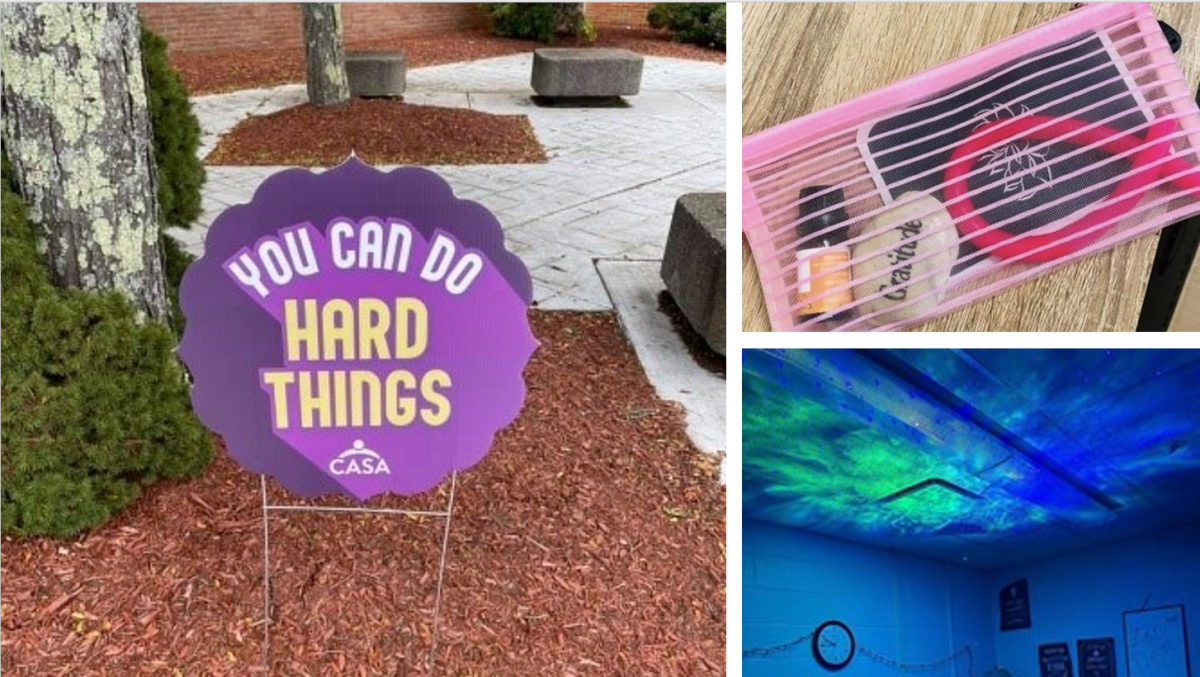
In the fall of 2020, Citizens Against Substance Abuse (CASA) conducted a virtual survey of 7th – 12th graders to get a sense for the impact that the Covid-19 pandemic was having on substance use trends and mental health for youth in the community. “Something we did which I’ve seen other coalitions do, was we had one of our members who graduated recently, create a video that we shared along with the survey, which explained the purpose of the survey, how it’s anonymous and how it helps support youth and families in the community,” said Haley Brown, Project Director of CASA.
“We had heard in prior focus groups that kids might not be answering with complete honesty, because they were worried about it not being anonymous. Based on that feedback, we decided to create a video where they could hear from one of their peers, which I think helped soothe those fears.”
The survey provided surprising results. Despite what CASA anticipated, substance use rates in the community appeared to drop significantly. “There were a couple of ideas about why that could be, like with kids being home, there could be a decreased opportunity for them to use or gain access to substances or gather in unsupervised places.”
“I think we thought the rates were going to be higher, and it was higher for some who were feeling more stressed or anxious during that time, but overall, the substance use rates appeared to be low.” Instead, what grabbed CASA’s attention was the clear need and increasing priority to raise mental health awareness and provide support and resources where possible. CASA addressed this need with various strategies.
“We have a Zen Den in the high school, which was originally created as a senior capstone project a couple of years ago. It’s intended to be a safe place for kids to go to if they’re feeling anxious or overwhelmed. Earlier in the pandemic, when they were attending school remotely, they weren’t able to access it any longer, so we created a virtual Zen Den on our website. We included different videos on mindfulness, meditation, yoga and featured TED talks, as well as memes and pages they could print out to color.”
“Another neat thing that came out of this, was that we created a CASA Cares initiative, where every Wednesday we share a hopeful message or resource out through our email distribution and social media.”
“From there, it kind of took off. Now we have an interview podcast series that we do once a month to reduce stigma and connect the community through storytelling. This past month’s topic focused on trauma, and the first one was about stress during the pandemic and coping strategies. We decided to go down the most cost-effective route and upload the interview to YouTube so that it can be easily shared through our website and social media. That was another reason we decided to try this different avenue to reach people and get information out there, because it can be a struggle to get high attendance at community meetings.”
“Another thing we did at the beginning of the pandemic, was create take home stress kits that we would drop off with contactless delivery. I think overall we got 100 requests, and that was something, again, where we saw that mental health doesn’t discriminate – we delivered kits to wealthier neighborhoods and apartments alike.”
“Ultimately our goal was to do everything we could to support the community and the school system in making the youth feel hopeful and reassuring them that there is always a trusted adult that they can reach out to if they are feeling overwhelmed or stressed. We plan on keeping an eye on mental health data as we continue to survey and implement substance misuse prevention strategies.”
“One of my key takeaways was to take the data very seriously, and not just to do it because it’s a requirement. The surveys can tell us what areas to focus on and what the youth are dealing with, so if it continuously shows our numbers are increasing in youth who feel anxious, then it’s up to us to act and to help decrease those numbers. I think data is so important in general because it gives us valuable information and the place to start planning on how we can home in on very local and specific issues.”


